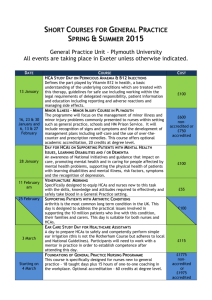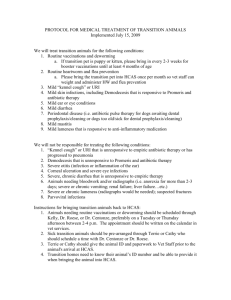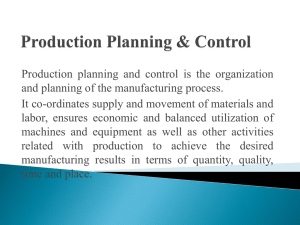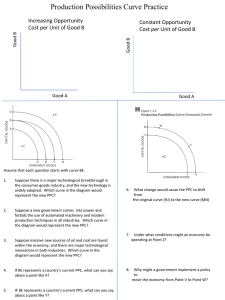Geol Sci response to Scenario #3 3.30.12 PPC report
advertisement
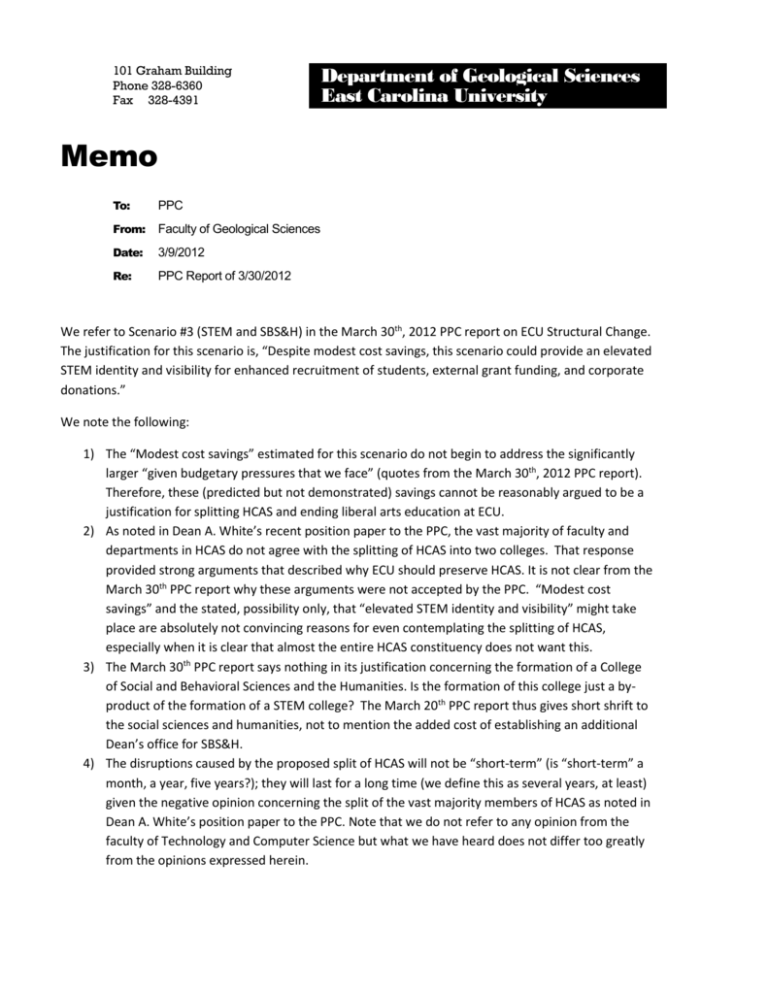
101 Graham Building Phone 328-6360 Fax 328-4391 Department of Geological Sciences East Carolina University Memo To: PPC From: Faculty of Geological Sciences Date: 3/9/2012 Re: PPC Report of 3/30/2012 We refer to Scenario #3 (STEM and SBS&H) in the March 30th, 2012 PPC report on ECU Structural Change. The justification for this scenario is, “Despite modest cost savings, this scenario could provide an elevated STEM identity and visibility for enhanced recruitment of students, external grant funding, and corporate donations.” We note the following: 1) The “Modest cost savings” estimated for this scenario do not begin to address the significantly larger “given budgetary pressures that we face” (quotes from the March 30th, 2012 PPC report). Therefore, these (predicted but not demonstrated) savings cannot be reasonably argued to be a justification for splitting HCAS and ending liberal arts education at ECU. 2) As noted in Dean A. White’s recent position paper to the PPC, the vast majority of faculty and departments in HCAS do not agree with the splitting of HCAS into two colleges. That response provided strong arguments that described why ECU should preserve HCAS. It is not clear from the March 30th PPC report why these arguments were not accepted by the PPC. “Modest cost savings” and the stated, possibility only, that “elevated STEM identity and visibility” might take place are absolutely not convincing reasons for even contemplating the splitting of HCAS, especially when it is clear that almost the entire HCAS constituency does not want this. 3) The March 30th PPC report says nothing in its justification concerning the formation of a College of Social and Behavioral Sciences and the Humanities. Is the formation of this college just a byproduct of the formation of a STEM college? The March 20th PPC report thus gives short shrift to the social sciences and humanities, not to mention the added cost of establishing an additional Dean’s office for SBS&H. 4) The disruptions caused by the proposed split of HCAS will not be “short-term” (is “short-term” a month, a year, five years?); they will last for a long time (we define this as several years, at least) given the negative opinion concerning the split of the vast majority members of HCAS as noted in Dean A. White’s position paper to the PPC. Note that we do not refer to any opinion from the faculty of Technology and Computer Science but what we have heard does not differ too greatly from the opinions expressed herein. 5) We predict that decreased productivity (publications and grants) caused by the disruptions related to the splitting of HCAS will cost more in terms of external grant dollars lost than the amount of administration dollars estimated to be saved by splitting HCAS and forming two new colleges. 6) It is clear that applied, technology-based programs have very different expectations, cultures, and generally different ways of doing business than departments in HCAS. Forcing unwilling faculty members into an alliance that they do not want, because it does not make sense given the minimal justification for the alliance, is a recipe for, if not disaster, at the very least for considerable unrest, disruption and unhappiness. We are concerned that many of those faculty members who feel most strongly about this, and have the necessary accomplishments to be mobile, will leave ECU. This is not a way to improve the quality of the faculty at ECU and the quality of the education that our students receive. 7) HCAS faculty members currently have the opportunity and wherewithal to collaborate in interdisciplinary endeavors within the varying liberal arts disciplines, in particular between the social and natural sciences. We can state that these collaborations take place because we have been a part of them. HCAS faculty members also have the opportunity and wherewithal (right now) to collaborate with colleagues, for example, in Engineering. Several HCAS faculty members were involved (significantly) in the search for a new hire in Engineering. That position was defined to help promulgate further interdisciplinary research with HCAS (and other college) faculty members. Swapping the current organization (natural and social sciences in the same college) with a new one (natural sciences and technology in the same college) does not make sense if the stated goal is to (maybe) increase visibility of and interactions within the latter because the logical corollary would be that the separated natural and social science would, therefore, have decreased visibility and interactions. To replace something that does work (even if not perfectly) with something (poorly justified) that might work cannot be condoned. 8) We agree with the sentiment of the statement in the 30 March PPC report that, “ PPC will not recommend any structural change that provides modest improvement to administrative efficiency while producing significant disruption and little gain to collaborative environments.” It is our strong opinion that this sentiment applies to Scenario #3 (STEM and SBS&H). In the spirit of openness we note that one Geological Sciences faculty member does not agree with this statement. We recognize the huge and sincere effort that the PPC has made over the past several months. This response is sent to you with the same sincerity. Page 2

